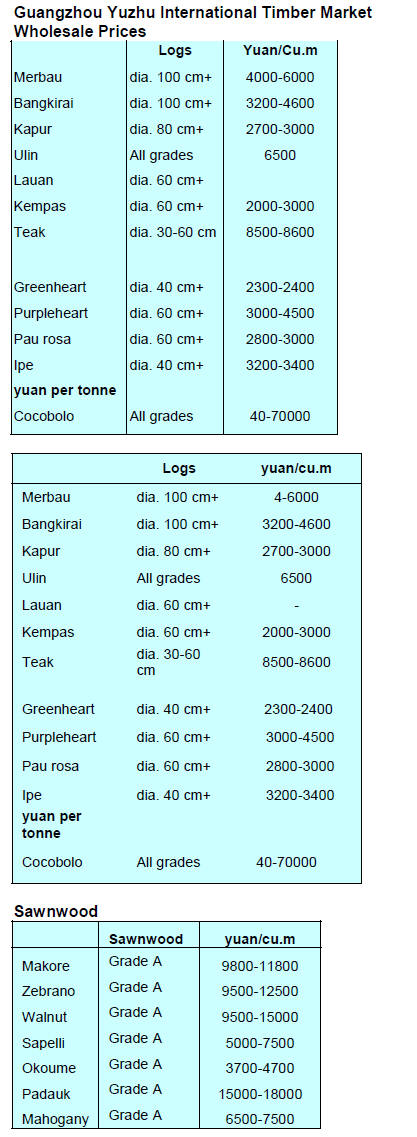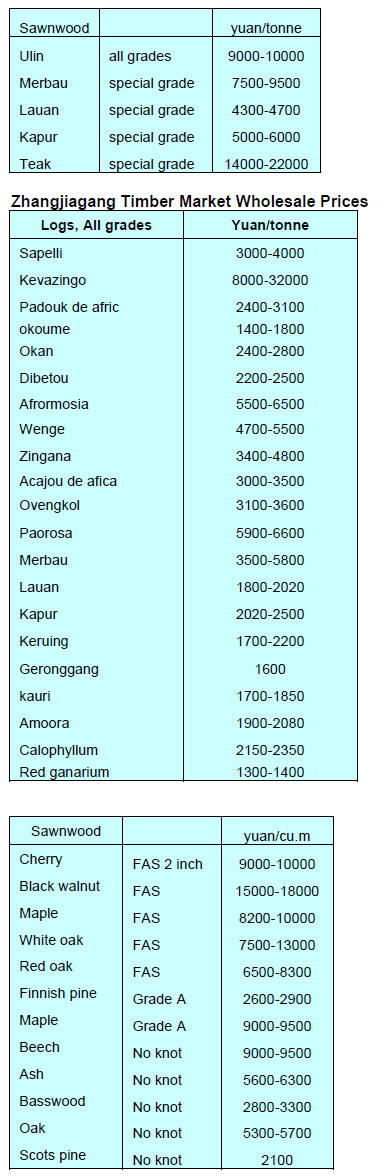US Dollar Exchange Rates of
10th November
2019
China Yuan 7.0658
Report from China
National pollution permits needed for wood industries
Nine industrial sectors¡ªfarm and sideline food-processing
sectors; wine, beverage and refined tea manufacturing
sectors; furniture manufacturing sectors; and water
production and supply sectors¡ªmust obtain national
sewage discharge permits by the end of 2019, and
companies within these sectors much obtain certificates.
A failure to obtain permits within the timeframe will mean
that discharges will be regarded as pollution without
permits.
The following wood products enterprises need to obtain
national pollution emission permits:
>> wood-based panel manufacturing plants with
an
annual output of over 200,000 cu.m; and
>> sawnwood, woodchip processing,
furniture
manufacturing, bamboo, rattan, palm and grass
products with a chemical treatment process or a
painting process in an oil paint (containing diluent
agent) of 10 tonnes or more.
Many timber processing plants in Guangdong cease
production
Many timber processing plants in Guangdong Province
have stopped or limited their production recently due to
local environment protection policy and supervision and
this will likely lead to a sharp rise in the price of
construction timber in the domestic market.
November is the peak season for Guangdong wood
processing enterprises and reduced production will cause
delays in deliveryies to construction projects. Timber
processors are being encouraged to move to Huizhou (also
in Guangdong Province), but many have not yet done so.
Efforts are being made to meet the shortfall from Belt and
Road Initiative countries, but this is only a stopgap
measure. Local analysts are telling traders they should
exercise caution in signing contracts in Guangdong
province to avoid large increases in production costs. At
the same time, customers should place orders early to
ensure adequate supplies.
Panel output in Guangdong province declined in the first
three-quarters of 2019: plywood by 4% to 2.05 million
cu.m, mid- and high-density fiberboard by 0.5% to 3.09
million cu m, and particle board by 17%, to 1.59 million
cu m over the same period last year.
Pizhou, the plywood capital
Pizhou City in Jiangsu Province is the country¡¯s main
distribution centre of plywood, and it is known as the
¡°hometown of Chinese panels¡±.
The city hosts about 2000 panel enterprises, and its annual
plywood production capacity is 20 million cu m.


|